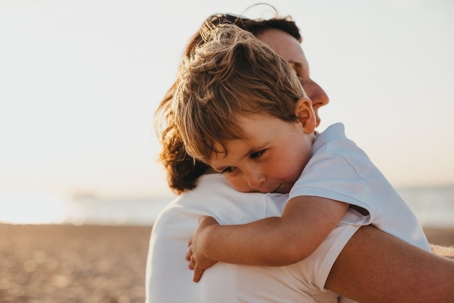
When we think about it, we plan for a large majority of events in our life. Whether planning out our next vacation, which car to buy, or even where to go out for dinner with the family, we take the time to do so because we want to make sure that we’re able to make the most of these endeavors- we want to make certain we get them right. But when comes to having an estate plan - deciding who will inherit our assets after we’re gone – it often falls to the wayside. While estate planning may not be as inspiring to think about as booking a trip to Europe, the important truth is that, without an estate plan in place, we will not have control in deciding who gets everything that we worked so hard for. In truth, estate plans are far less about you than they are about your family and those you love. Consider these four reasons why you should have one, in order to avoid potentially devastating consequences for your heirs.
1. An Estate Plan Allows You to Protect Your Heirs
A common misconception that many people hold about estate plans is that you need a certain amount of assets to justify having one. That’s simply not true. Perhaps one of the biggest advantageous to having an estate plan is that you can state what happens to your belongings after you’re gone, whether it be millions of dollars, or a few meaningful items.
Common assets such as retirement account, investments, homes, cars, and bank accounts can all be addressed in an estate plan. You can create a plan of how these assets are passed on to your loved ones, so that they don’t have to make these decisions after you’re gone.
What’s worse is that if you die without a will, the courts will then have to determine who should receive your assets, which is a process that can take time and money, and often is hard on the family members who are left behind.
2. An Estate Plan Can Assign Guardians for Young Children
It’s not pleasant to consider what might happen in the event of an early death, but if you have young children, it’s not something that should be avoided. It’s important to have a plan in place for all possible scenarios so that you can help protect your children in the event of your untimely death. Estate plans allow you to state your preferred guardian of your children in your absence, and share your wishes for your how your children are raised. Should you pass away without assigned guardians, the court will have to intervene and make this decision on your behalf based on the information that they do have.
3. An Estate Plan Can Spare Heirs from Taxes
Perhaps the biggest benefit of an estate plan is that it allows you to protect your loved ones even after you’re gone. One way estate plans achieve this is by helping to create the smallest tax burden as possible for the heirs of your assets. With the help of an attorney who understands estate taxes, couples have the ability to reduce certain federal and state estate taxes and state inheritance tax for beneficiaries. Without a plan in place, they may find themselves facing a large sum of taxes that they weren’t expecting or prepared for.
4. An Estate Plan Can Reduce Family Feuds and Tension
A devastating consequence of not having an estate plan in place is the pressure it can put on family members left behind to decide how to divide assets. In a perfect world, family would be able to make these decisions amicably, but this is often not the case. Whether it’s due to sentimental attachment, hard feelings, greed, or stress, it’s not uncommon for family members to butt heads when it comes to deciding on what assets should go where and to whom. Unfortunately, these squabbles can ultimately land family members in court, and create deep rivets between people.
By clearly designating who controls your finances and assets if you become incapacitated or pass away, you can largely help to prevent family strife and ensure that your assets are handled in the way that you intend them to be.
A good estate plan can also include individualized plans to make arrangements for a child with health complications or set up a trust for one who might benefit not inheriting a large sum of money all at once. It can also help you give more assets to the family member who did most of the work of caring for you in your later years.
The need for a well-crafted estate plan becomes even more imperative if you've have recently been divorced, have had more than one spouse or have children from more than one family. If you want your assets and your loved ones protected when you can no longer do so, you need to have an estate plan. Without one, your heirs could face huge tax burdens, courts could designate how your assets are divided and even who gets to raise your children.

